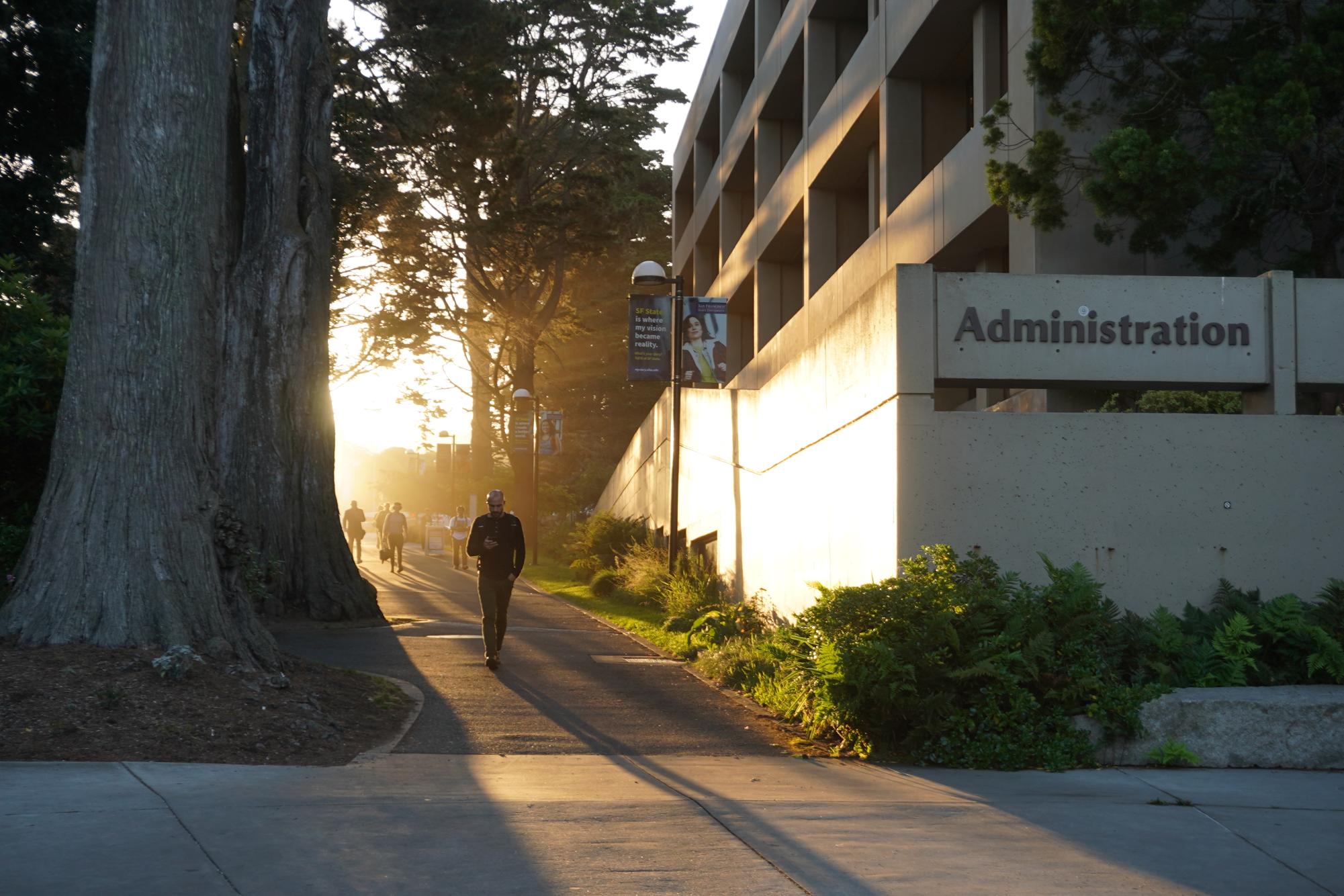
Behind the impacts of the Spring 2025 schedule and budget cuts
After dedicating 17 years to teaching at San Francisco State University, English lecturer David Gill faces an uncertain future.
“I’m being laid off. Although we’re not supposed to say laid off, we’re supposed to say we’re being exited,” Gill said. “My family will lose our health benefits. I’ll lose my career. Honestly, I’m looking at accepting unemployment and maybe substitute teaching in Oakland’s public school system.”
Gill’s experience exemplifies the human cost of ongoing budget cuts at SFSU, where course offerings for Spring 2025 have been reduced by 10.8% compared to Spring 2024.
The reduction — from 2,991 sections to 2,678 — represents more than just numbers on a spreadsheet. It means fewer class choices for students as enrollment begins on Nov. 12, lost benefits and jobs for lecturers, and what some see as a fundamental shift in the university’s ability to deliver on its educational mission.
“I’m mourning what seems to be the reduction in quality of a great education,” said Gill, who also studied at SFSU. “As a former student at San Francisco State, I had smaller classrooms. The tuition was a fraction of what it is today. We had counselor and tutoring services that are no longer around, there was an English tutoring center that no longer exists.”
The current situation at SFSU reflects a dramatic transformation over the past decade. Data from Institutional Research reveals a steady decline in course offerings since 2020.
From 3,756 sections in Spring 2020, the university has experienced consistent reductions each semester, culminating in the upcoming spring semester’s 2,678 sections — a decline of about 29% over five years.
Dr. Lori Beth Way, vice provost of academic planning and dean of undergraduate education, said that the class cancellations before the fall semester began should have never happened, promising that the university will do its best to prevent cancelling sections.
“I really think if we do our job and we do what we’ve always done, which is put the students first and what they need first, that we might not be able to offer all the sections we had or we might not but offer as many sections that we will and we should — and we will offer the course schedule that students need,” Dr. Way said.
These reductions in course sections since 2020 parallel a significant enrollment decline. Data shows that enrollment was already declining before the pandemic.
Dr. Arno Puder, the chair of the computer science department, says the enrollment decline is a “homegrown problem” at SFSU.
“I mean, a third of the students are poof — gone, just into the pandemic,” Dr. Puder said. “Our sister campus, San Jose State, they’re doing perfectly fine with enrollment. They have 35,000 students, so they have not seen this enrollment drop. So we have issues here at San Francisco State. I would not put the blame on the CSU as a system.”
At SFSU, departments and schools are at the same administrative level. They’re facing challenges in adapting to reduced resources.
According to Dr. Puder, the computer science department has grown explosively to become the biggest department on campus, even with fewer resources available.
“Since Spring 2012, we have more than quadrupled in size,” he said. “So we were like around 400 students in Spring 2012. 12 years later, now we’re at 1800 and that growth has not mirrored in the faculty growth.”
With only 15 full-time faculty members, the department relies heavily on lecturers to teach approximately two-thirds of its course sections. Yet, even this growing department faces pressure to reduce offerings.
“The budget cuts that we had to implement — even computer science was asked to cut the class offerings, which is completely insane when you think about it,” Dr. Puder said.
This has led to an exodus of professors in the department.
“Over the last two years, eight faculty — eight professors have decided to leave San Francisco State and mostly because they don’t feel properly supported here,” he said. “Computer science at San Jose State, they have 1,000 students and have 26 faculty. We have 1800 students and we have 15 faculty.”
The School of Design has lost both teaching capacity and operational resources.
“I put in my schedule and was essentially told to cut it [in] half — meaning cut out most of lecturer-run sections,” said Mari Hulick, the director of the School of Design.
Hulick also said there were additional reductions beyond faculty: “We relied on $50-$75,000.00 in instructional equipment to properly run our shops and our facilities. That has been entirely eliminated.”
The criminal justice studies department’s schedule was created through data-driven decisions.
“To decide on the courses, we look at how many students still need our core courses and then provide that number of courses,” said Dr. Elizabeth Brown, department chair. “For electives, we see what we have available in personnel and then choose the appropriate electives. As we have fewer classes to offer, we do not have the number of classes we would normally have to offer our lecturer faculty. Tenure track faculty have not been impacted yet.”
The university’s lecturer workforce has experienced dramatic changes over the past decade. After mostly steady growth from 863 positions in 2014 to a peak of 1,092 in 2021 — a 26.5% increase — lecturer positions have rapidly declined to 919 in 2023, representing a 15.8% reduction in just two years.
“Just the constant never knowing, not having like that job security. I’m 33 years old, you know. So it’s like having job security would be nice. It’d be great to not be so like, flimsy in the wind,” said Malori Redman, a lecturer in the School of the Environment. “The anxiety that I feel every single semester when we’re making the schedule is insane and it’s terrible for my mental health.”
For department chairs and school directors, delivering news of reduced teaching loads has been particularly difficult.
“I had to tell two lecturer faculty that they had no work for spring and several more that I had insufficient work for them to even maintain their health care,” said Dr. Andrew Oliphant, director of the School of the Environment, describing it as “the worst week of my 22 years at SF State.”
SFSU President Lynn Mahoney said lecturer faculty hiring is driven by enrollment, so the reduction in the number of lecturer faculty has followed the enrollment decline.
“Some departments have far fewer students than they once did and are responding in a variety of ways including having more tenure-line faculty teach lower division courses and reimagining their curricula,” Dr. Mahoney said.
According to SFSU Provost Amy Sueyoshi, “The course schedule and sections offered are based on student need and expected enrollment demand. If any student has difficulty enrolling in a course they need to graduate, they should contact their adviser immediately for assistance.”
Dr. Sueyoshi also mentioned that students are graduating faster, despite a smaller number of courses being offered.
“Between 2015-16 and 2023-24, average time to degree improved for both first-time freshmen and transfer students,” Dr. Sueyoshi said.
According to Dr. Way, vice provost of academic planning and dean of undergraduate education, students are getting their degrees faster due to better tutoring and advising services, reduced administrative barriers such as registration holds and other strategies to meet targets set for Graduation Initiative 2025, the CSU’s plan to increase graduation rates.
These improved rates don’t reflect a deteriorating educational experience for students though.
“There’s not as many class listings as I would like for there to be,” said Lily Byrd, a third-year psychology student. “I’m in school because I want to learn about more specialized things or more progressive things, or I want to have variation. That’s why I’m at a four-year, especially in somewhere like San Francisco.”
Student-athletes are finding it especially difficult, according to Asia Arbaugh, a second-year business student and player on the women’s volleyball team.
“A lot of the times we end up only being able to take hybrid or asynchronous classes because our schedule conflicts with most of the in-person classes,” Arbaugh said. “Classes are available but a lot of them don’t fit with my schedule because I’m on the volleyball team and we have practice in the middle of the day most of the time.”
Arbaugh is meeting requirements and making degree progress, “but a lot of times it’s not classes I would choose to take or it’s not on the form I would choose to take.”
Graduate students are also struggling with limited course availability.
“Classes such as intro to grad studies in the music department are only offered once a year, and like graduate analysis is offered once every two years,” said Masha Aleskovski, who’s earning a master’s degree in music. “Some people are discouraged by the fact that they cannot take those classes, therefore they cannot graduate on time.”
Each college is responding in a different way to the challenges presented by budget cuts and declining enrollment.
College of Science & Engineering
According to Dr. Carmen Domingo, dean of the college, “We have made a commitment to our students and we want to make sure that they have the classes they need to graduate. They may not see the exact elective that they want, but they will still have terrific classes to choose from. We try as much as possible to provide students with a range of course offerings that meet their interests and needs.”
Dr. Domingo said the courses chosen to be offered, or not, depend on each department and their programs. She emphasized the need for funding.
“We need to work collectively with our CA State representatives to request a higher budget allocation to the CSU system — they are not providing enough funds to the CSU system to meet our needs,” said Dr. Domingo.
College of Liberal & Creative Arts
“The course schedule is planned to facilitate student progress to degree,” said Dr. Ifeoma Kiddoe Nwankwo, dean of the college. “Chairs and directors have worked tirelessly in partnership with faculty members and with college leadership to ensure students can enroll in the courses they need to graduate, by raising course maximums, developing pedagogy suited to large lecture classes, and strategically planning course rotations to cover breadth requirements.”
Dr. Nwankwo stressed that students who are worried about graduating by the semester they want to graduate should talk to advisers.
“The department leader would be the best person to advise students about when a particular course of interest might be offered,” Dr. Nwankwo said.
College of Health & Social Sciences
“We have planned very carefully so students’ progress toward their degrees is not impeded,” said Dr. Andreanna Clay, the interim dean of the college.
Clay said that the college works closely with department chairs and school directors to ensure that students get the courses they need to graduate.
“If specific courses get canceled or are not offered, accommodations are made for students so that they can complete their major or minor fields of study, and finish their degree,” Dr. Clay said. “The associate dean, Dr. John Elia, and I are working with the chairs and directors to identify and implement methods so that students will not be adversely affected. Specifically, we are working on streamlining the curriculum, reducing roadblocks, eliminating bottleneck courses, and coming up with other ways to help students progress as smoothly as possible through their academic programs.”
College of Ethnic Studies
“We are experiencing approximately a 10% reduction in course offerings in Spring 2025 from Spring 2024,” said Dr. Grace Yoo.
However, students will continue to be able to complete their programs though.
“The College of Ethnic Studies department chairs have done an outstanding job with scheduling the essential courses,” Dr. Yoo said. “I commend them for their efforts.”
According to prior reporting by Golden Gate Xpress, the college has faced funding challenges before, leading to a hunger strike in 2016.
Lam Family College of Business
This college is offering about 50 more sections in Spring 2025 compared to Spring 2024, according to Dr. Yim-Yu Wong, associate dean.
“We try to meet students’ needs by adding sections if there is enough demand for them,” said Dr. Wong. “Early registration tends to help determine the need to add new sections.”
For any students who need required courses that aren’t being offered, departments may offer course substitutions, Dr. Wong said.
Graduate College of Education
According to Dean Cynthia Grutzik, only one undergraduate major is offered by the college — the Bachelor of Science in Speech, Language, and Hearing Sciences.
“Currently, we have about 99 students in this major,” Dr. Grutzik said. “Because this is a very structured major leading to careers in audiology, speech-language pathology, and other health fields, we are careful to offer the courses that our students need to graduate, even if they are more full than usual.”
Dr. Grutzik noted that since the college offers mostly graduate and credential programs, it hasn’t faced the same undergraduate enrollment decline and has seen a rise in graduate enrollment.
“We also have two doctoral programs, eight master’s programs, and 11 credential programs leading to licensure for teaching, leadership, or specialist services,” Dr. Grutzik said. “In these programs, since there are no electives and all courses are needed for graduation or credential completion, we plan ahead to offer sections for the number of students who are enrolled, to make sure that all our students can complete their course of study.”
Dr. Grutzik said the college is still offering fewer courses where it can and filling them up to capacity.
An email sent by President Mahoney to faculty on Oct. 29, obtained by Golden Gate Xpress, revealed that future budget cuts may threaten student degree progress.
Dr. Puder, the chair of the computer science department, says the university is at an unprecedented moment.
“We had difficult times before — 2008 — there was also a budget crisis and we had to do furloughs, unpaid mandatory leave,” Dr. Puder said. “But things went OK again when we came out of the last crisis and then we were able to continue with what we were doing before. This feels different, the cuts that are being done. Now that we are being asked to do — administration basically said don’t count on that things will be better next semester. So we’re about to continue the cuts, anticipating budget cuts from Sacramento, from the governor’s office. So I don’t really see this improving, to be honest.”
Editor’s note: This story was updated to correct Dr. Nwankwo’s name and to include more paragraphs from President Mahoney’s email.
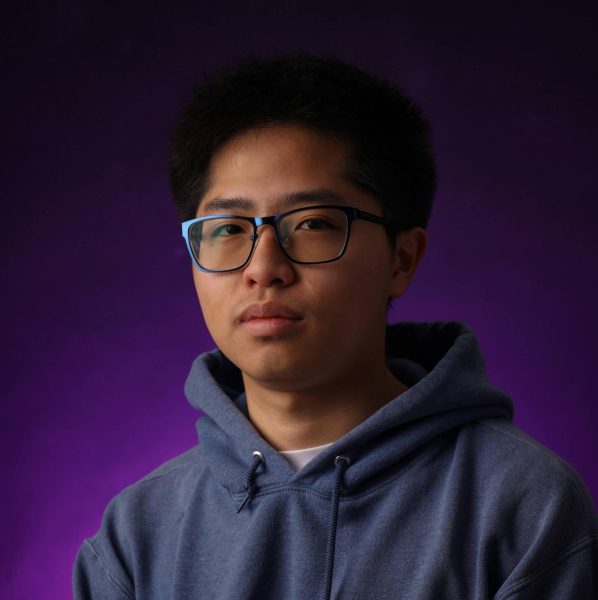




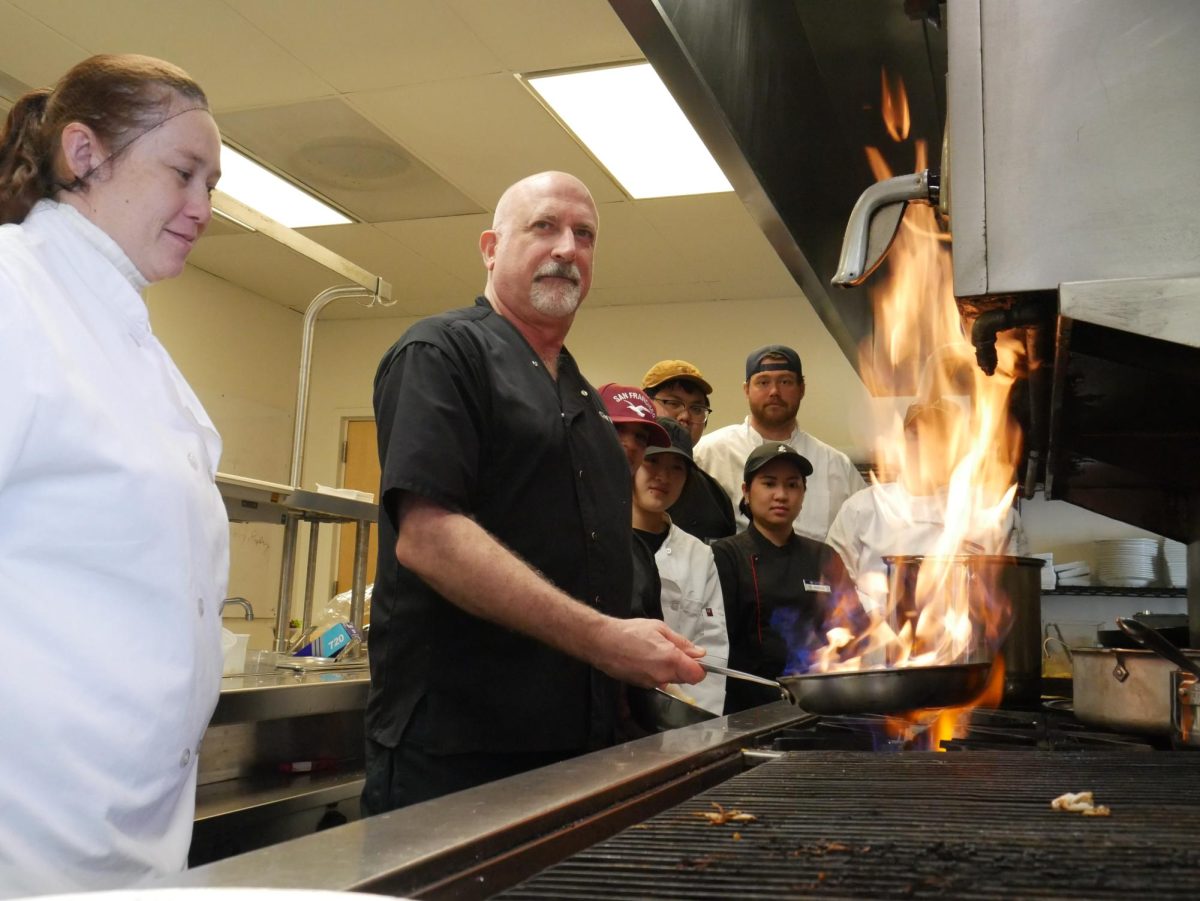
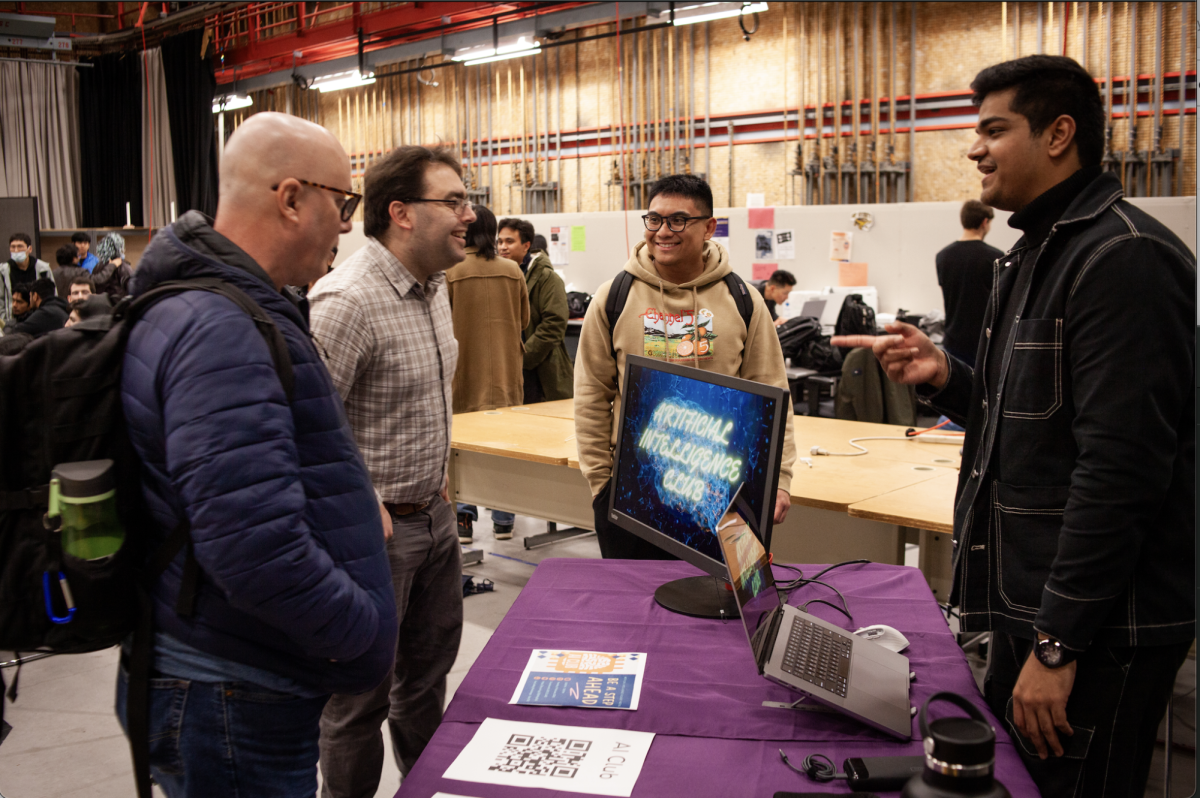
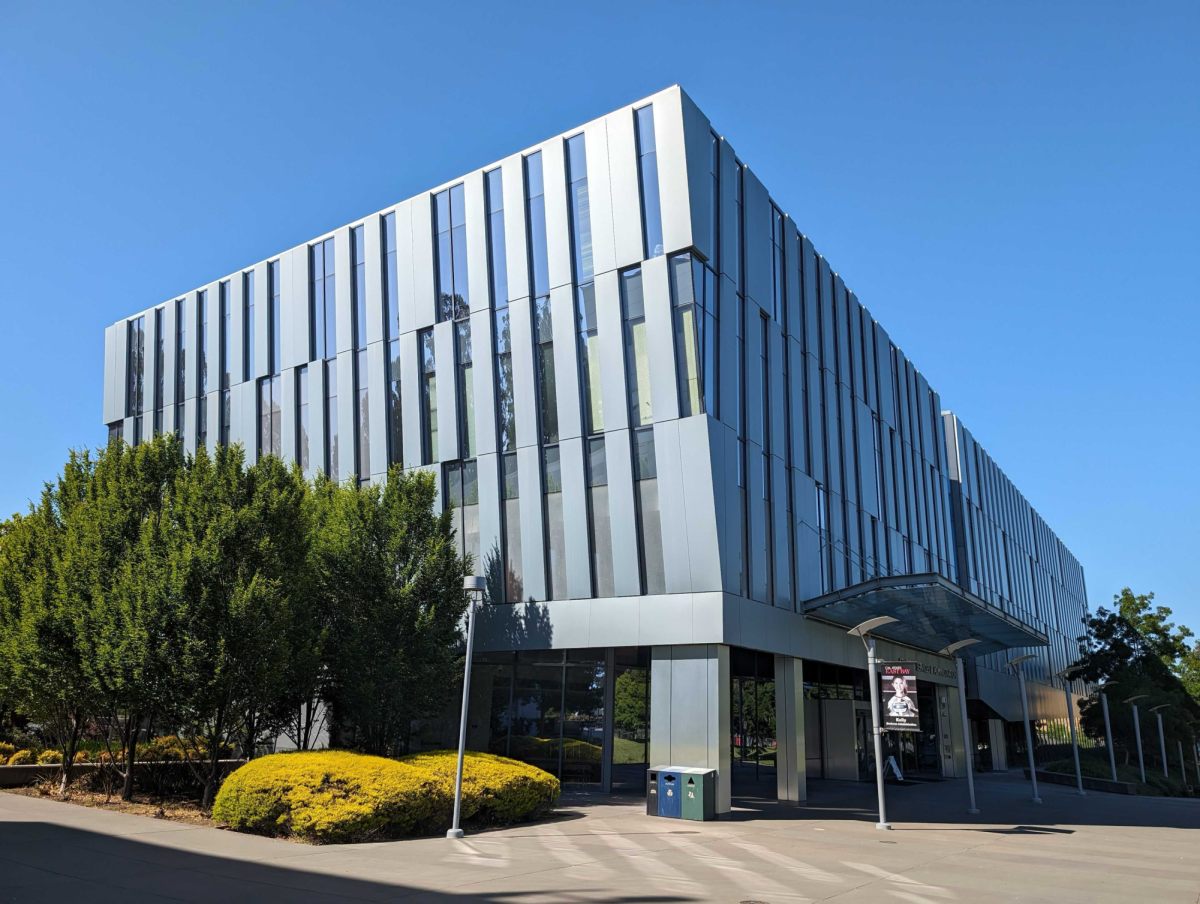
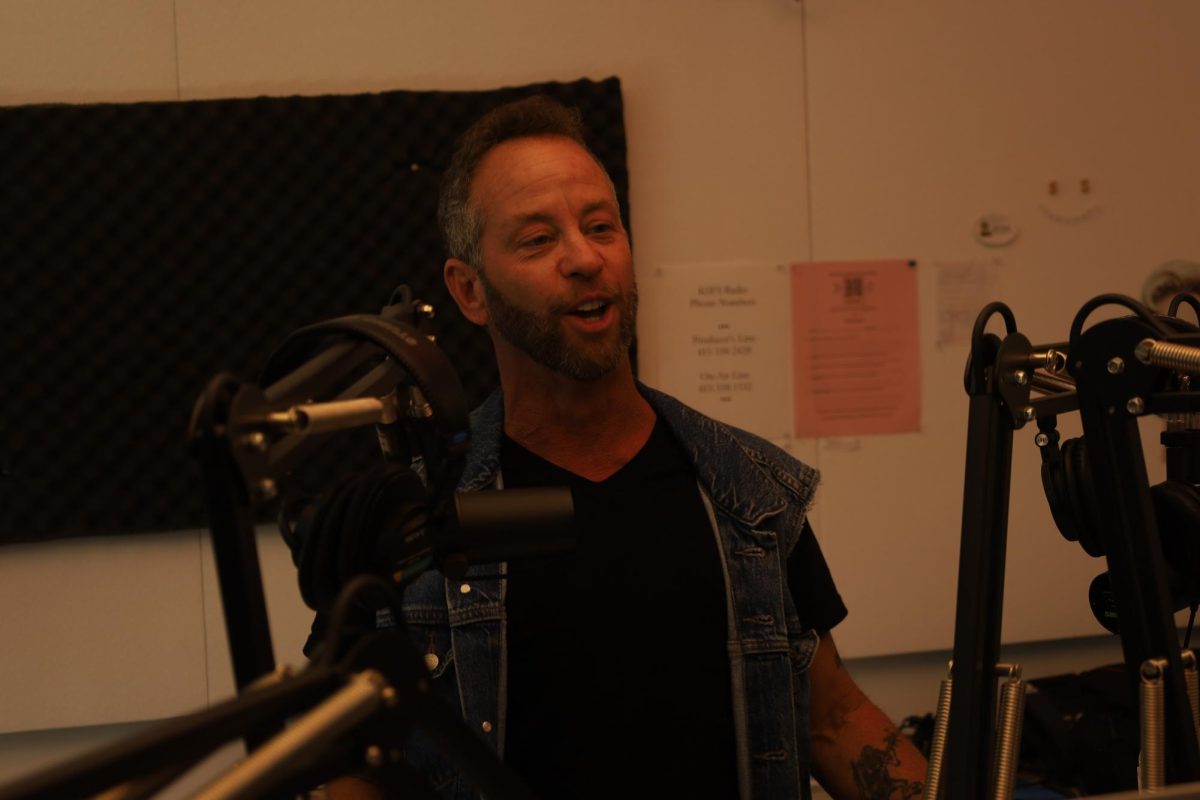
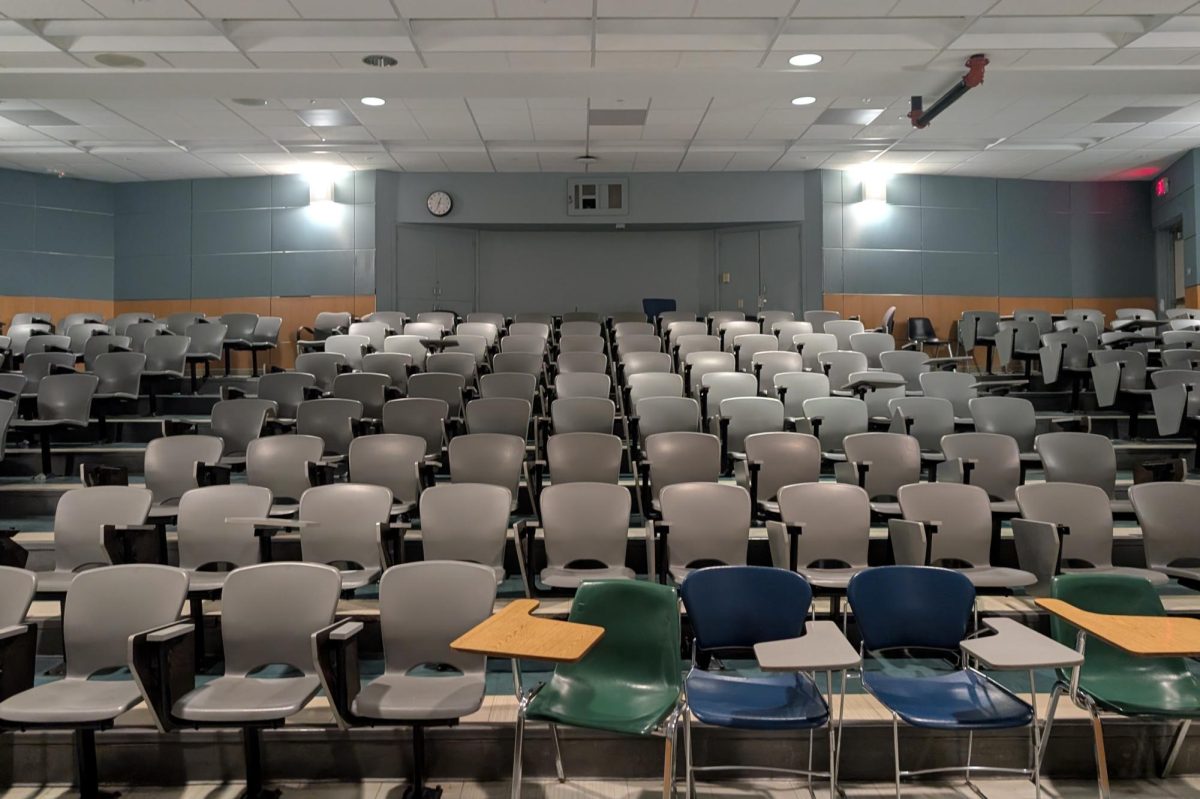
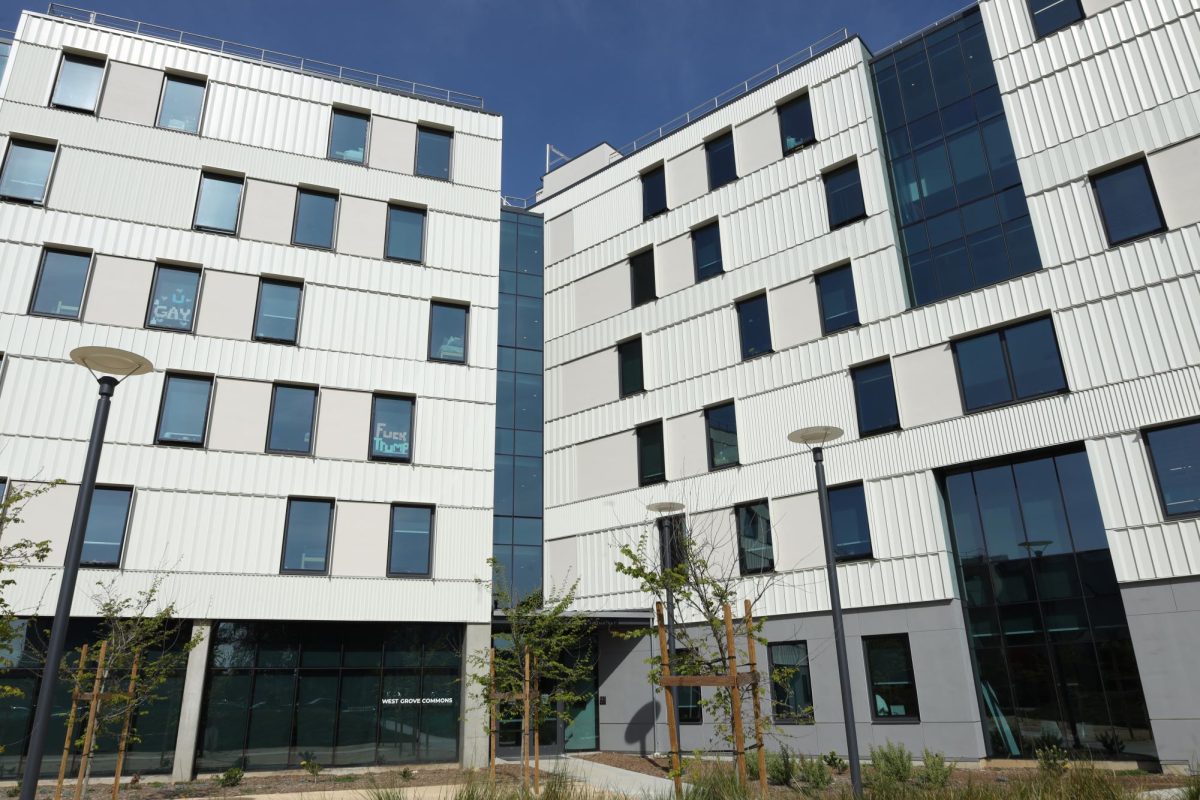
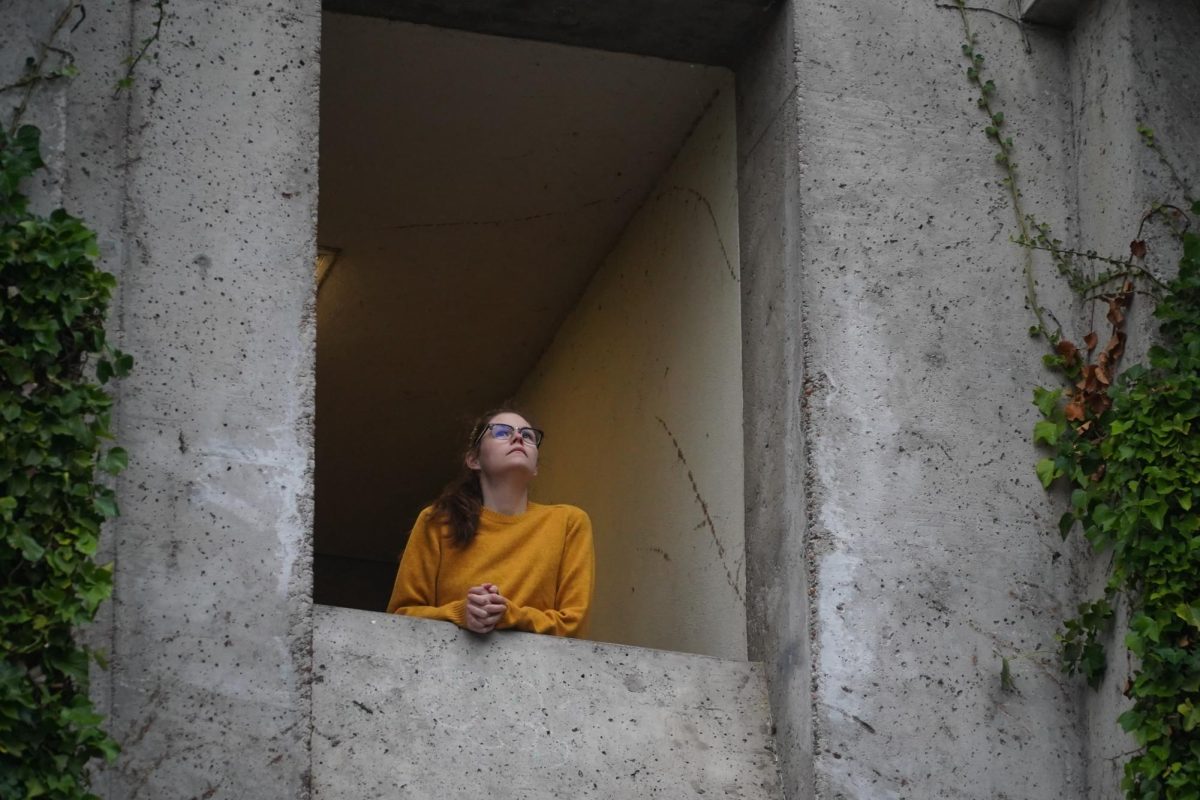
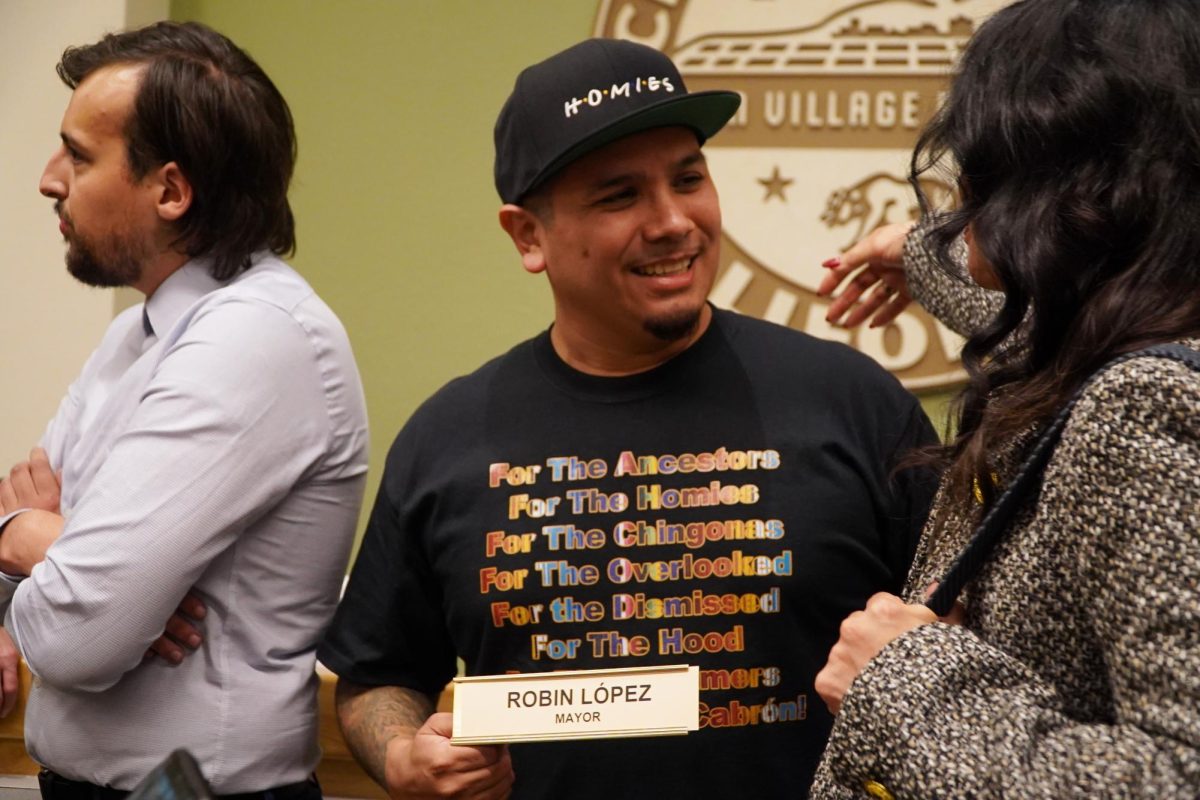
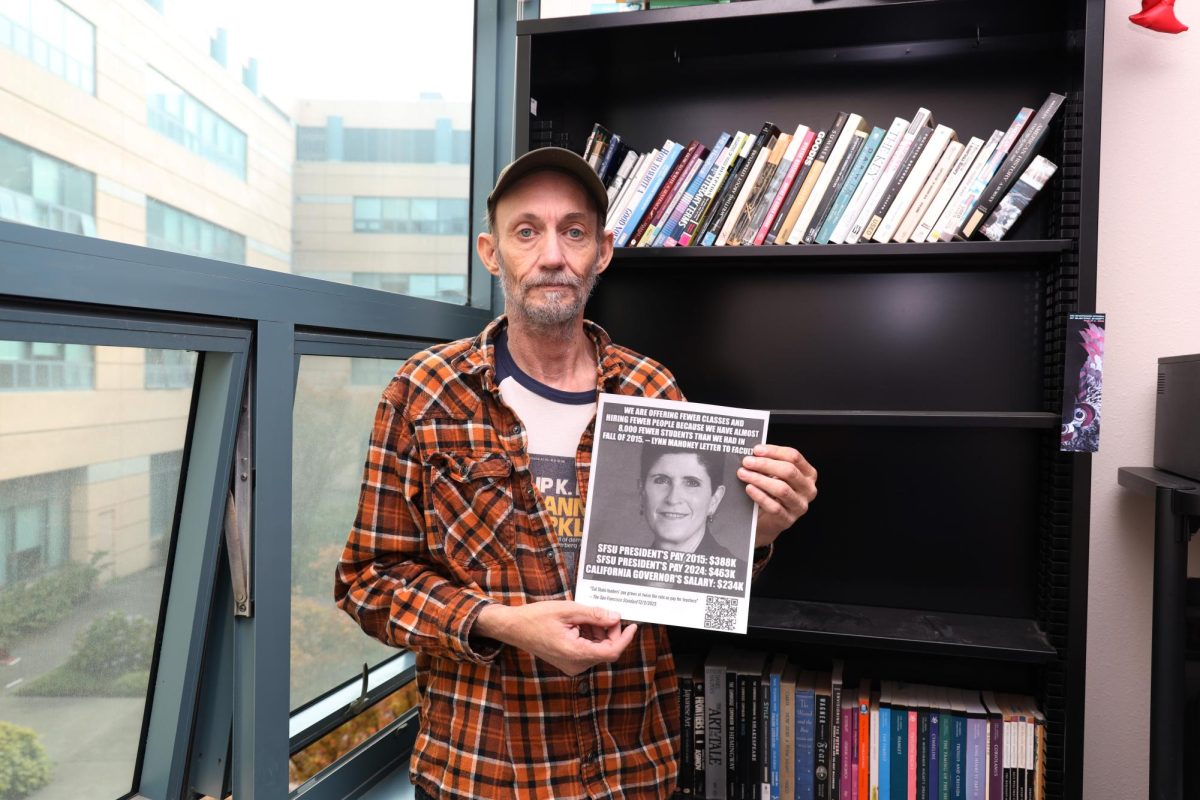
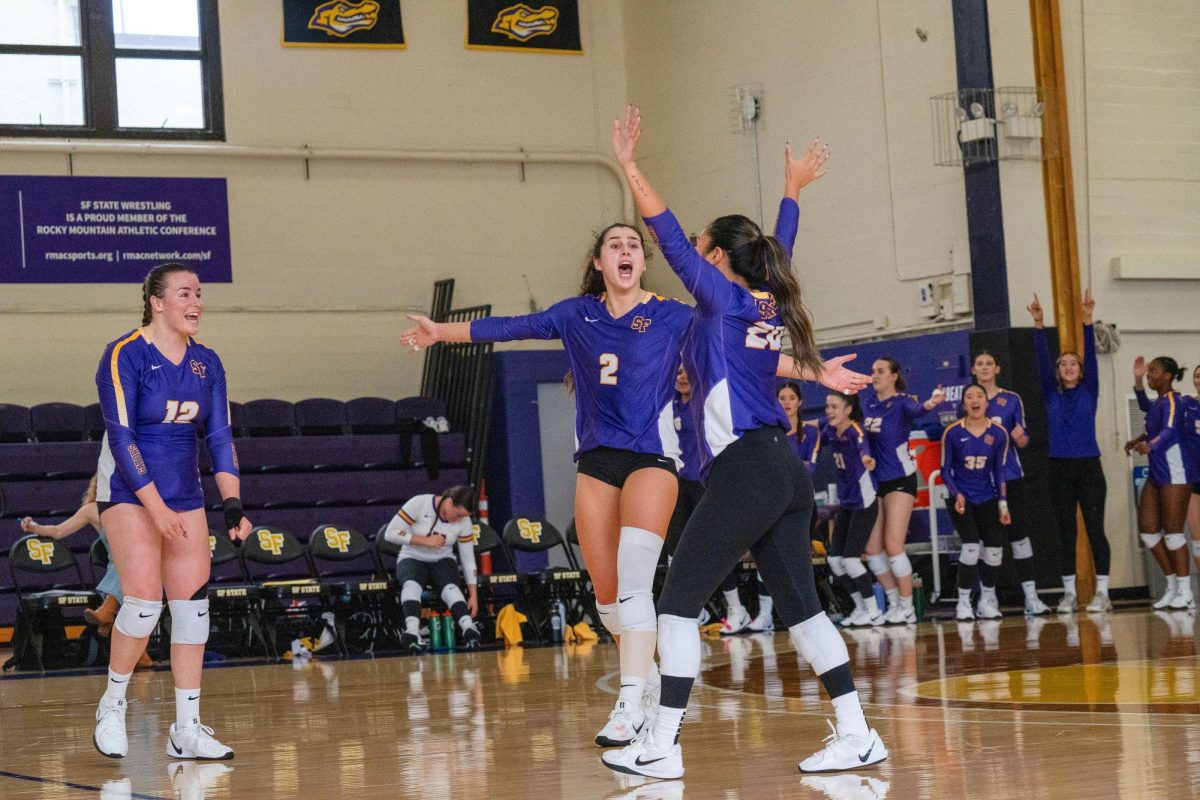
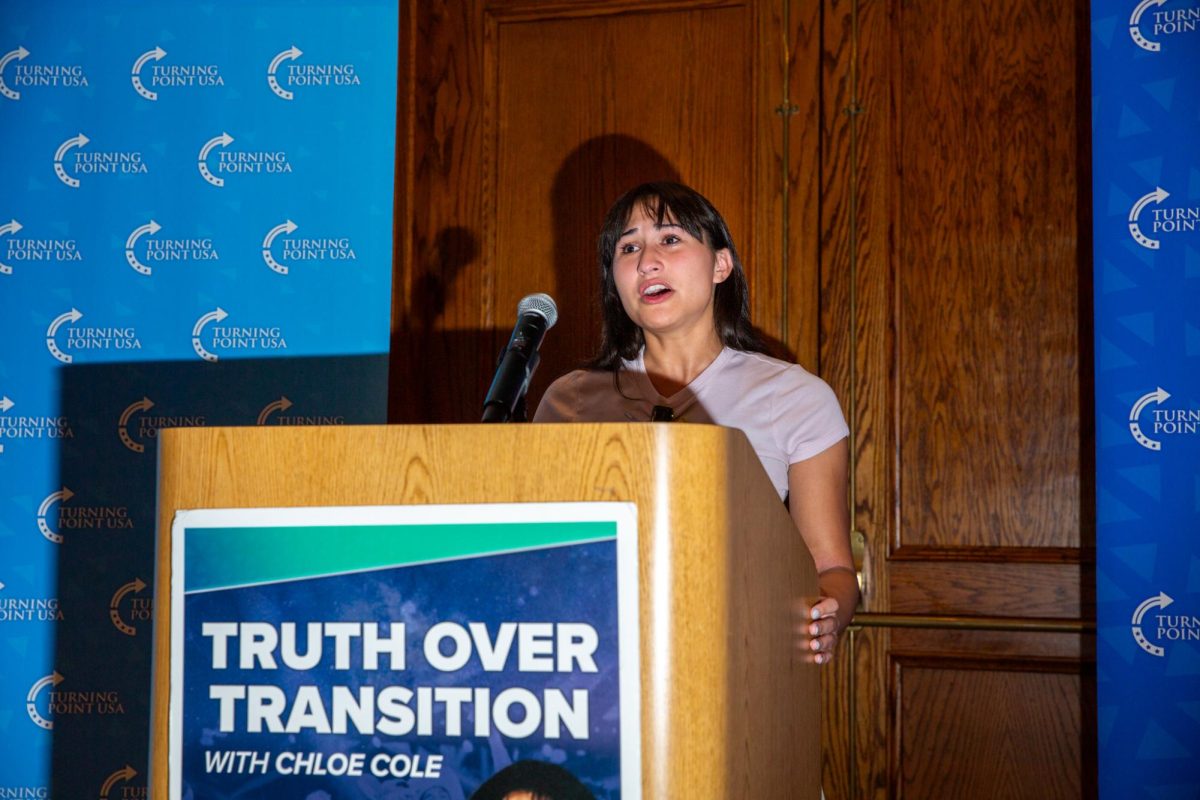
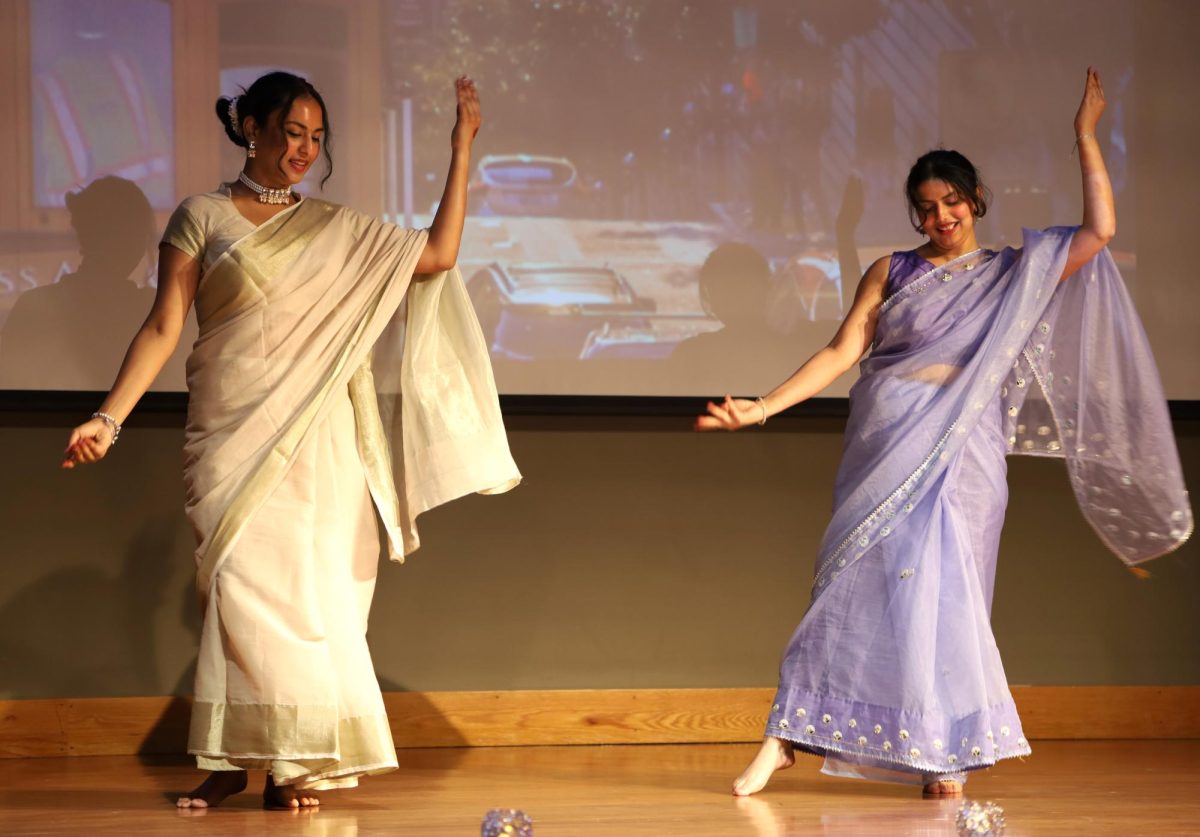
Raskolinkov • Nov 22, 2024 at 1:15 pm
If you have fewer students you could have smaller classes. By keeping lecturers– hundreds of whom are losing their jobs, healthcare and sense of purpose– you could also maintain academic programs. Make no mistake: this is a political decision shaped by a blinkered, neoliberal ideology. SFSU is being transformed out of all recognition and at the end of it Mahoney will simply skate along to another plum job, taking her half a million dollar salary with her.
Ernie Brill • Nov 20, 2024 at 10:06 am
As a SF State alumni, and SF State Strike veteran and lifetime “good troublemaker” in the traditions of Dr.King, Fannie Lou Hamer, MalcomX and Richard Wright, Toni Cade Bambara, Janice Mirikitani, Pedro Pietro. and so many more from the thousands who helped win the School of Ethnc Studies,I m suggesting it may be time to put additional pressure on Sacramento to give its colleges MORE funding.
There are many ways to do this.A collective caravan from as many colleges to Sacramento might help, with additional possible actions such as sitins (old school. I know but it’s often worked from time immemorial( and some of the latest attention getting tactics such as encampments. Some other people might suggest internet bombardments as the MOVE organization did years ago, clogging up places to the point of no function. But that might be, along with encampment, against the law, yet as Dr.King once stated, ‘ An unjust law is no law at all.”